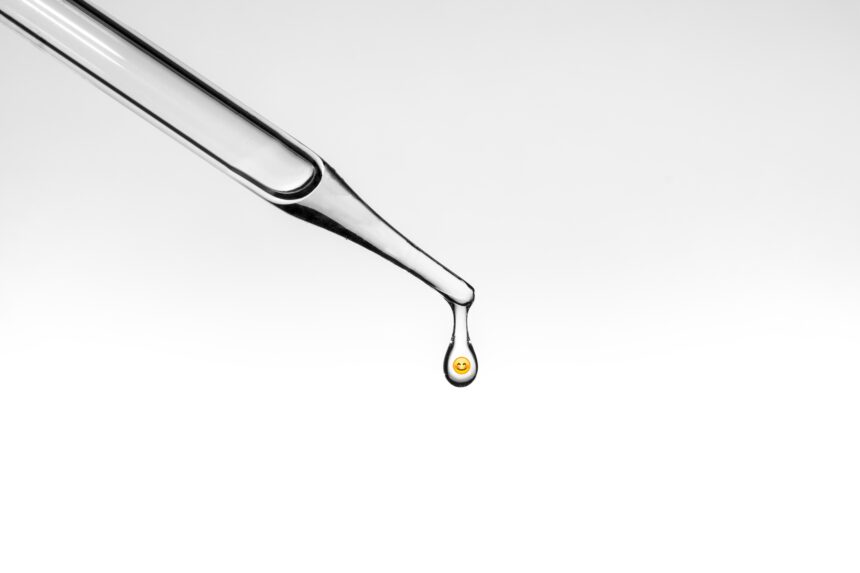Biotech giant Cell Mate Corporation, a pioneer in the use of genetically modified cells, just announced an innovative new product that could dramatically improve the lives of everyone on Earth, yet it has spawned controversy.
The company’s new product is synthetic Milk of Human Kindness, a substance known to raise levels of compassion and empathy. It occurs naturally in most people, but not often, and usually in small amounts. Although the world needs kind-heartedness now more than ever, complaints about synthetic Milk of Human Kindness have been pouring in from all over.
Among the first to whey-in were dairy-industry lobbyists, who have been fighting to limit the use of the word “milk” on product labels, hoping to cream the makers of soy, almond, and rice beverages in court. These drinks have been marketed as milk, a fact that has gotten under the skim of dairy proponents. In a video posted to her website, lobbyist Heloise Holstein is clearly sour on Cell Mate. “They won’t even let us know if they’ll sell Milk of Human Kindness in the dairy section. It’s bound to confuse shoppers.”
Angus Jersey, president of Wisconsin-based Big Daddy Dairy, whipped-up public opinion against Cell Mate in a Madison Chronicle op-ed this morning. “Very little is known about synthetic Milk of Human Kindness. Will there be a lactose-free version for those who are intolerant? More importantly, will it be pasteurized? Who knows what kind of cultures could grow in it.”
Writers of daily horoscopes are concerned as well. Mercury Retrograde, a nationally syndicated astrologist, asked readers to sign a petition against the new Cell Mate product in their column today. “If Milk of Human Kindness is unleashed on the world, you’ll probably be lucky in love and finances every day, no matter what month you were born,” they write, asking “Where’s the fun in that?”
Academics are raising further questions. “If Milk of Human Kindness prompts criminals to return stolen property, should they still be prosecuted?” asks Marshall Law, professor of criminal justice at Columbia. “And a sudden drop in violent crimes would reduce work-related stress for police officers, meaning that divorce lawyers could see a drop in business. There are so many ripple effects we need to consider.”
Defense contractors also took aim at Cell Mate’s plan. In a Morning News, USA segment today, Blitz Krieg, press liaison for Major Dynamics, appealed to Americans’ sense of fairness. “Our analysts say more Milk of Human Kindness will result in fewer global conflicts, which will hurt our sector. A lot of hard-working billionaires invest in defense. Their lifestyles are at stake.” Pantheon CFO Warren Peace agreed, adding, “Sure, we could re-tool to make civilian goods, but consumers would want us to stop price-gouging. Have a little compassion for our poor shareholders who would take a financial hit. Put yourself in their Stefano Rico shoes.”
Harsh words are also coming from organizations that typically champion innovation. Frank Mendacity, a senior fellow at the K-2 Institute, a think-tank that promotes free enterprise, blasted Cell Mate. “We can’t have Milk of Human Kindness flooding the market. It’s a rare commodity for a reason,” he writes in today’s post to K-2’s Telegram account. “Our culture is based on the premise that happiness comes from greed and materialism. We could end up with a population that feels good without even buying stuff, which would be a catastrophe. It’s obvious the regulators haven’t thought this through.”
Only scientists have offered support for Cell Mate’s new initiative. “We think Milk of Human Kindness may be related to oxytocin, a hormone that helps us bond with newborns and intimate partners,” explained Glandys Fuller, a professor of cell biology at Harvard. “Endocrinologists have always wondered why people like Mother Teresa and Bishop Desmond Tutu produced so much of it, while Vladimir Putin and Jeff Bezos obviously have none. We’re anxious to see if Milk of Human Kindness improves the worst of the worst around the globe, or whether they lack the appropriate kindness receptors.”
For their part, the U.S. Food and Drug Administration has added the following to its website: “Based on the results of laboratory analyses, we find no statistically significant variance between genetically modified and naturally-sourced Milk of Human Kindness in any of the parameters normally used to characterize this compound.”
I wish you all a Happy April Fools’ Day, in addition to a wealth of human kindness.
Become a Saturday Evening Post member and enjoy unlimited access. Subscribe now




Comments
Thanks for your frequent, thoughtful comments, Bob. Seems like you must already have a line on natural Milk of Human Kindness. I’ll be sure to give you a heads-up when this new supplement will be available.
Cheers,
Paul
Well Paul, I think what’s in your special report here could change the world for the better. The warmongers and military industrial complex trying to destroy our wonderful country certainly won’t like it, which is all the more reason this must continue. If it means midnight plots, cloak and dagger meetings and ruined careers later on, then so be it.
Milk of Human Kindness needs to get on the market as soon as possible. It’s safe and effective, and goes to work right away. No significant variance between the genetically modified and the naturally sourced takes away any last doubts anyone (but evil doers) would have. I say let’s give the injection the ‘all clear’ before midnight tonight!